About
Ready-to-use battery passport solution debuted by OKGO (EUROBIKE 2025)
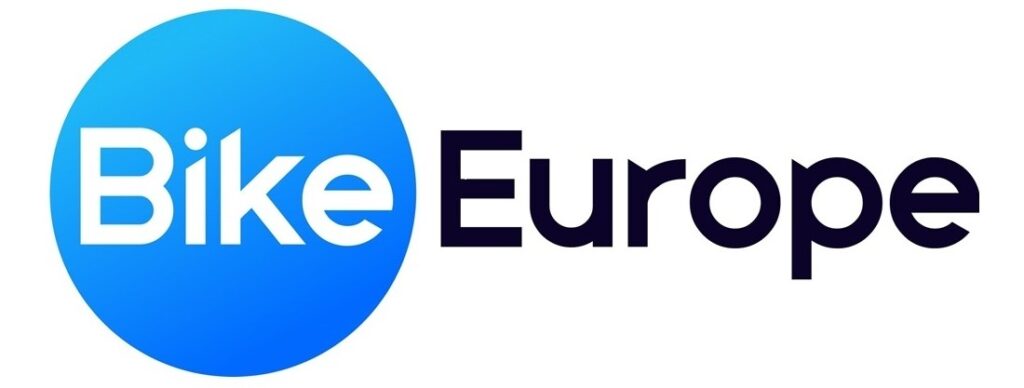
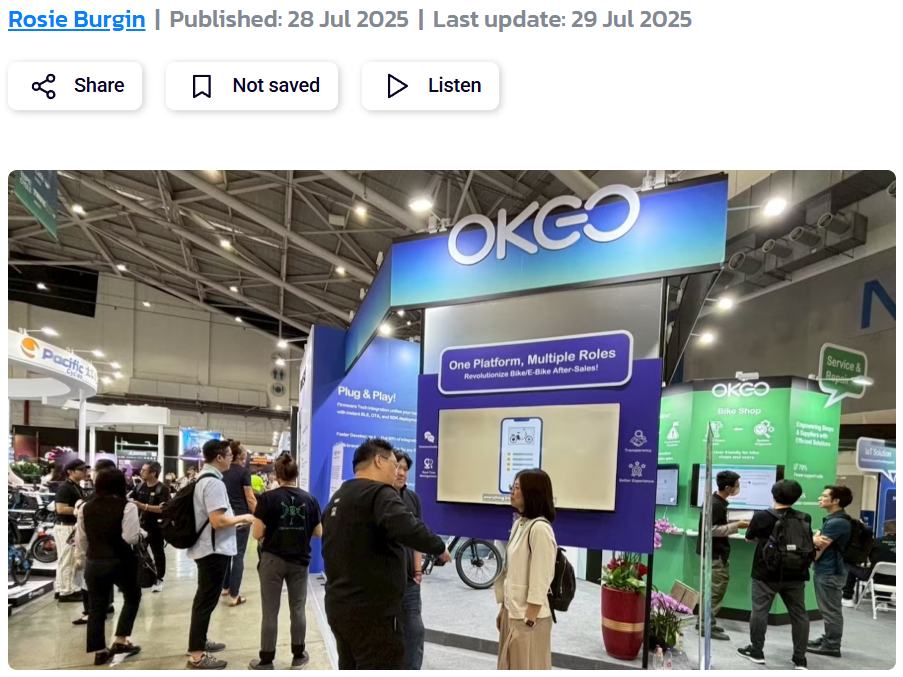
FRANKFURT, Germany – Taiwanese IT company, OKGO has developed a cloud-based, full-service platform to support the development of a smarter e-bike industry. Additionally, the company recognises that digital solutions are evolving from ‘nice to have’ to ‘need to have’ as more regulations come into play. On display at Eurobike, the company debuted its fully compliant Battery Passport solution developed in collaboration with Chinese battery manufacturer Greenway.
OKGO originated in 2019 with a hardware solution in the form of an electronic control unit (ECU). This serves as a unified platform in communication with all smart components on an e-bike, such as the motor, display, GPS tracker, etc. The young company soon realised the value was less in the hardware and more in its end-to-end platform for the e-bike ecosystem.
Not a gatekeeper of digital transformation
To facilitate a low entry barrier for users, brands can build their own ECUs using OKGO’s open blueprints and plug directly into the platform. “Our role is not to be a gatekeeper of the digital transformation, but to enable everyone to take this step,” explains Jan Wiers, head of European operations at OKGO.
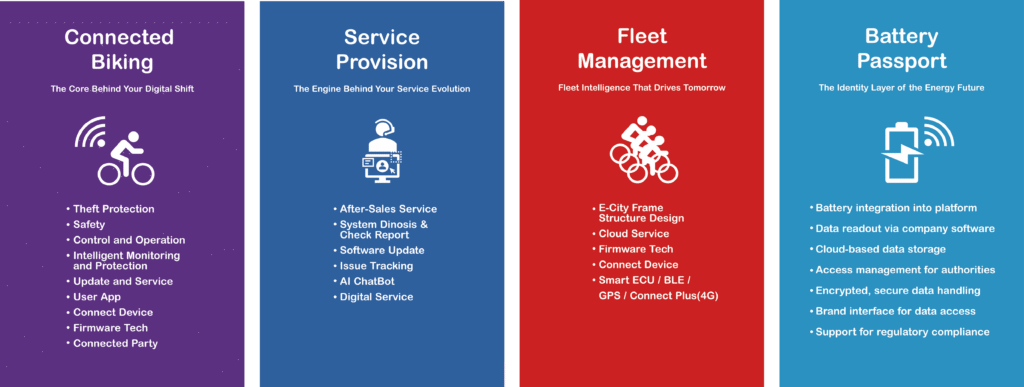
Following integration onto the platform, the company’s modular, cloud-native infrastructure can connect brands, retailers, suppliers, and service providers across the e-bike industry. Focused on four pillars, it has been designed to offer a solution for tighter regulations, fragmented systems, rising service demands and disconnected customer experiences. The first bikes with fully integrated firmware will launch in time for the 2026 season, offering OTA updates, predictive maintenance and seamless diagnostics.
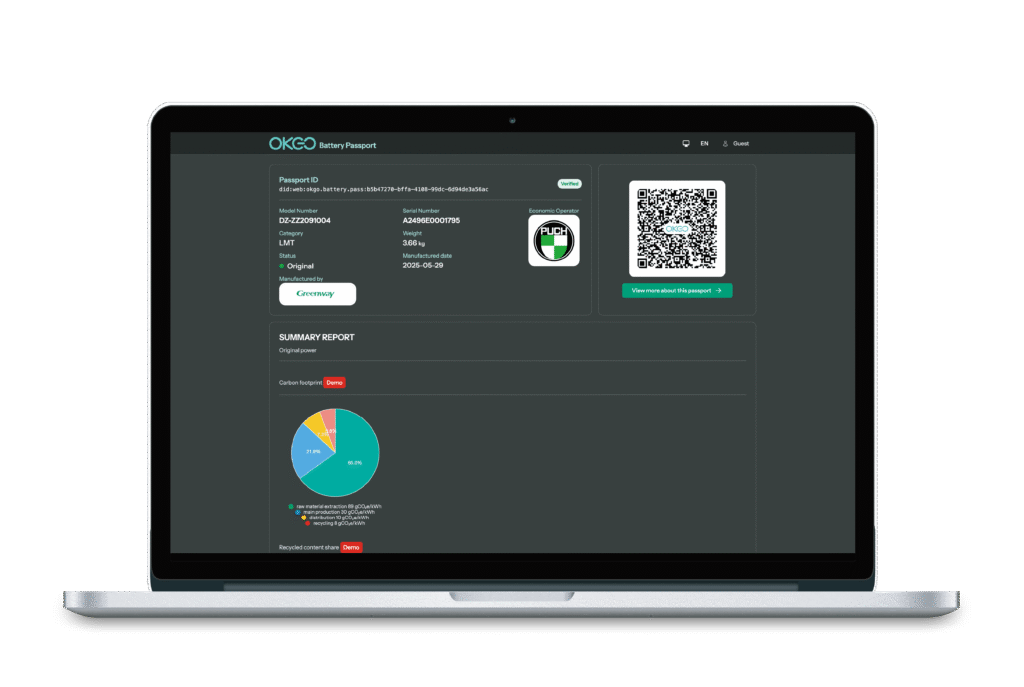
Fully operational battery passport
One of OKGO’s most notable features is a fully operational and technically compliant battery passport tool. The digital battery passport and QR code are integral parts of the new European Union battery regulation (EU) 2023/1542, coming into force in February 2027. “In order to have compliant products on the market, the time for having a solution is now; 2026 will be too late,” says Wiers.

The company claims the first fully demonstrable solution for this was on display at the OKGO and Greenway booths during Eurobike. The operational platform showed that both static and dynamic data points could be successfully read out.
“As a battery manufacturer, your expertise is in hardware, so it’s not so interesting to build a digital solution in-house. This requires more than just adding an external Bluetooth device or CAN bus, but a fully integrated, cloud-based system. We have that infrastructure already in-house,” explains Wiers. “Greenway recognised this and has been a forerunner in developing this battery passport solution together with us.”
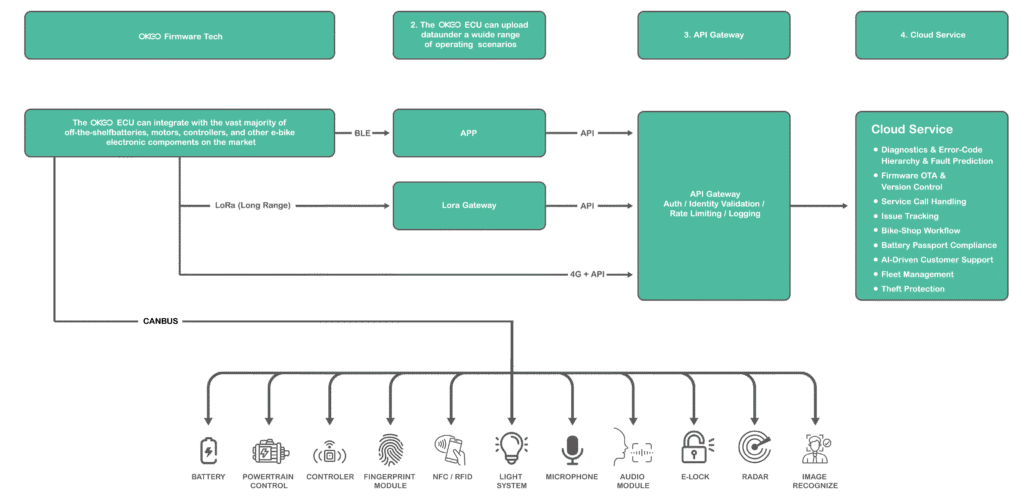
Data-driven transparency
As shown at Eurobike, scanning the QR code on the battery pack allows for real-time monitoring of battery health, usage patterns and remaining useful life (RUL). Aside from data-driven transparency, the precise lifecycle navigation for batteries is provided. In the future, carbon footprint accounting will be integrated into the system, with carbon emission data across the entire chain – from raw material extraction to recycling.
“Our infrastructure is cloud native, and the EU regulation requires that everything has to be securely put on a European server so that regulators can read the data in and out at all times. We’ve proven that this works through our collaboration with Greenway. We’ve also tested Phylion batteries, so we know it works across other suppliers.”
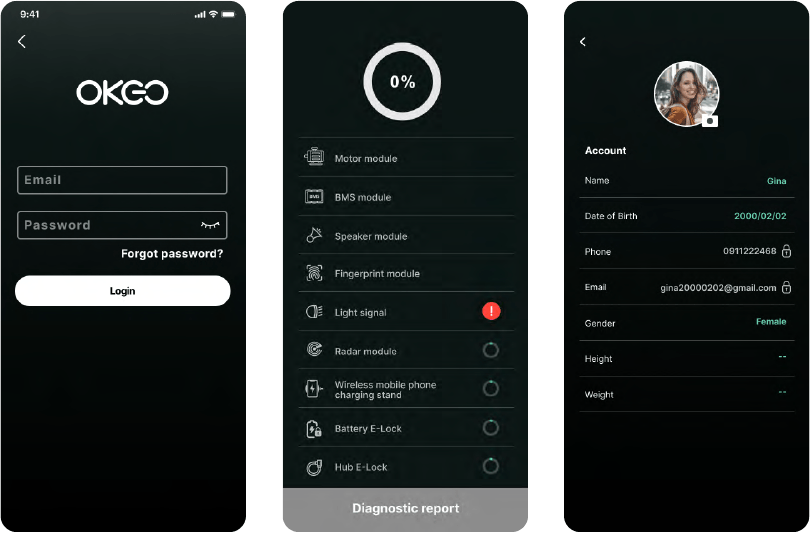
Future developments
The battery passport has been integrated into the OKGO platform, but the solution will also be available as a standalone tool. The business model operates on a fee per battery, per year basis. To implement the battery passport, suppliers must ensure that their systems have IoT functionality.
Wiers confirms that they are in discussions with several battery manufacturers, and depending on the supplier, it would take around four weeks to integrate a supplier’s products into the system. OKGO would also bear the responsibility of making clients’ products compliant should any changes or updates be made to the battery regulation in terms of data requirements.
View full article:
https://www.bike-eu.com/50351/ready-to-use-battery-passport-solution-debuted-by-okgo












